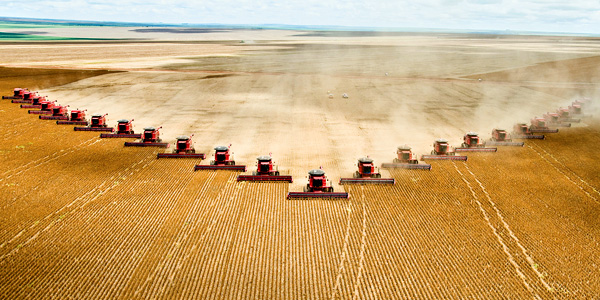
Behind closed doors the European Commission is negotiating about a massive trade deal with the South American block Mercosur. Talks continue despite increasing concerns for farmers and the environment. Part one of a two-part article with Hans Wetzels.
It’s a sunny day in the East German Uckermark. In the thinly populated area north of Berlin, nature reserves and grain fields interchange with livestock farms. Asparagus and strawberries grown here are sold in the many Berlin farmers markets; grain is exported through the harbour of Rostock. “Thirty years after the collapse of the Berlin Wall, agriculture is still an important economic factor in this part of Germany,” Udo Hemmerling of the Deutschen Bauernverbandes (DBV) explains. “There is almost no heavy industry, and most farms are bigger than the family farms in the west. For rural employment and development it’s absolutely crucial that farmers here stay competitive.”
But that competitiveness is under threat, Hemmerling fears. In far-off Brussels, the European Commission is negotiating on a massive trade agreement with the South American block Mercosur (Mercado Común del Sur: Argentina, Paraguay, Uruguay and Brazil – the Venezuelan membership was suspended some years ago). The Mercosur-bloc is specialised in the export of tropical fruits, ethanol, large amounts of soya or sugarcane grown in the Brazilian jungle and cheap Argentinian beef. “For farmers in Germany it’s impossible to compete with the industrial meat production and soya plantations we know from South-America,” Hemmerling explains. “Polish sugar factories on the other side of the border will have to close their doors when they suddenly have to compete with Brazilian sugarcane. A trade deal with Mercosur would inevitably lead to job losses on EU farms and bring a major blow to agricultural sustainability.”
Bolsonaro
Among European farmers, the EU-Mercosur trade agreement has been controversial since the start of the negotiations in 1999. While the European agricultural sector is under increasing scrutiny to produce more sustainably, the Brazilian livestock industry cleared an area of primeval forests the size of Switzerland in 2016. Livestock farming in Brazil accounts for eighty percent of all deforestation in the country, and during multiple harbour inspections meats bound for export were found to be rotten, injected with potato-paste to increase weight or infected with salmonella.
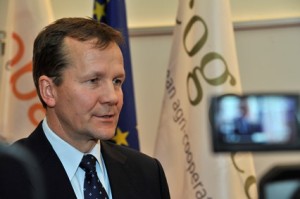
It may come as no surprise that EU farmers organisation Copa-Cogeca has been fighting tooth and nail to prevent the trade deal from ever being signed, without much success. From 11 to 15 March 2019, the 38th negotiation round took place in Buenos Aires, Argentina. But since right-wing president Jair Bolsonaro has taken office in Brazil, early 2019 worries of EU farmers have really escalated, Secretary-General Pekka Pesonen of Copa-Cogeca explains: “We have argued for long that Brazil does not follow the same sustainability path that we have been working on in Europe. EU farmers are struggling economically already. The last thing we need now is clearly unfair competition from a trading partner that does not fulfil the same requirements.”
Expectations are that the Bolsonaro government will not diminish further clearing of the Amazon – quite the opposite. The new president has been threatening to close more and more environmental agencies and wants to open up formerly protected indigenous territories to mining and agribusiness. “Mr. Bolsonaro’s political initiatives have been difficult to swallow in the EU, in particular on international relations and environmental protection. This has been the case for not only the environment, but also on sanitary issues and traceability of agricultural produce. We believe that securing food must be paralleled by sustainable production methods, in line with consumer expectations.”
European Parliament Reaction to Bolsonaro
The election of Bolsonaro has also prompted the European parliament in Brussels into action. In a string of letters sent during the last months of 2018 and the beginning of 2019, several parliamentarians directly urge President Jean-Claude Juncker and High Representative for Foreign Affairs and Security Policy Federica Mogherini to immediately stop negotiations with Mercosur. The European Greens sent a letter to Trade Commissioner Cecilia Malmström requesting her to address the “grave concerns” the group has concerning “the executive order put forward by President Bolsonaro which would transfer the regulation of indigenous reserves to the agricultural ministry. This would mean that 4.5 million small farmers will wait in vain to get access to land, and that any agricultural trade between Mercosur and the EU is most possibly jeopardising indigenous lands. Further, the appointment of Ricardo Salles as environment minister is particularly worrying, considering that he was found guilty of ‘administrative impropriety’ after altering maps on environmental protection measures to benefit mining companies in 2016.”
The parliamentary group also notes that “the Amazon rain forest and the Cerrado area, both highly important biospheres, are being further cleared and sold out for the implantation of soybean and other monocultures deemed for export” and they urge the Commission to “immediately halt the negotiations for an EU-Mercosur Association Agreement with the current government in Brazil.”
An Ambitious Commission
Despite the growing backlash from farmers and environmentalists alike, the European Commission still has every intention of rapidly closing a deal with Mercosur. ‘The EU is fully committed to concluding a balanced, ambitious and comprehensive agreement with Mercosur when the conditions are right. This is both because of the important economic gains it could bring as well as because of its strategic geo-political importance,” Chief Negotiator Sandra Gallina reiterated early 2019 during a meeting in Brussels.
On the South American side, the ambitions to sign an EU-trade deal are equally high. During a meeting in Buenos Aires on January 16, 2109, Bolsonaro and his Argentinian counterpart Maurizio Macri discussed the trade ambitions their countries have with the Mercosur bloc and stressed their common wish for regional integration and “perfecting” the Mercosur free trade area. “Brazil will be a strong ally in building an integrated region,” Bolsonaro said, according to a periodical status report sent out by the EU delegation in South-America. “It is necessary to value the original Mercosur tradition, with commercial opening, reduction of barriers and elimination of bureaucracies.”
Commission and Farm Organisations Differ
For the European Commission there is no doubt that “an ambitious, comprehensive and balanced trade agreement with Mercosur” is of vital importance for the EU. The deal might even prove beneficial for both the environment and European farmers, a Commission spokesperson optimistically explains: “By opening up the Mercosur agriculture sector and protecting well-known European food and drink products, like champagne or feta cheese, from imitation, we expect European farmers to also benefit. Last March we had our first negotiating round including the new Brazilian government. The agreement will include a trade and sustainable development chapter to ensure we strengthen trade relations whilst also fully respecting the need to protect the environment. It will cover issues such as sustainable management and conservation of forests, wildlife trade and respect for labour rights, provide a new forum in which to discuss how to make our trade flows more sustainable and address the rights of indigenous communities.”
Despite all these reassurances, the EU farming sector remains sceptical. Unrestricted import of Argentinian beef or Brazilian soya could prove to be not only a major environmental risk, but also politically risky in poor, rural areas of Poland or the East German Uckermark. “In comparison with the farms that are the norm in Brazil or Argentina, every European farmer operates on a very small scale,” Pekka Pesonen of Copa-Cogeca explains. “Everything we’ve achieved here concerning sustainable farming practices will fly right out the window if EU farmers have to start competing with industrial plantations in Brazil. The election of Bolsonaro clearly broadens the political differences between the EU and Brazil on matters like these. I doubt whether food and environmental standards will suddenly be upheld after an accord is signed under the current Brazilian government. That would be a very unfair position for EU farmers to be put in.”
Click on the button to load the content from www.reuters.com.
Brazil’s indigenous tribes protest Bolsonaro



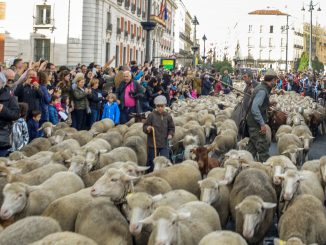
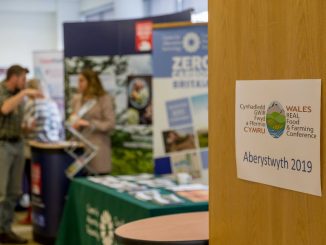
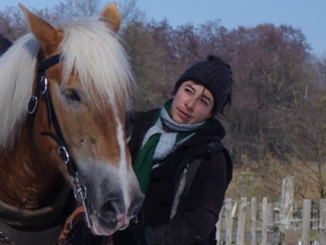
2 Trackbacks / Pingbacks
Comments are closed.